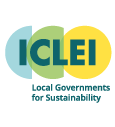
About Malmö
The City of Malmö is the commercial center of southern Sweden and truly an international city with about 350,000 inhabitants representing over 180 different nationalities. A city with an industrial past, Malmö has transformed itself into a thriving knowledge city which supports its young, inquisitive and creative population – almost half of Malmö’s residents are under the age of 35.
Over the last years Malmö has received many international awards for its focus on sustainable urban development and pilot projects such as the European housing exhibition Bo01, the Western Harbour, the redevelopment of Augustenborg, as well as the major development of the Hyllie area, with its smart grid, solar energy and passive housing. Malmö was also appointed the first Fairtrade City of Sweden. An ICLEI Member since 1996, Malmö is working actively for sustainability initiatives and is the first city in Sweden that has publicly announced the commitment to implement the UN SDG’s.



